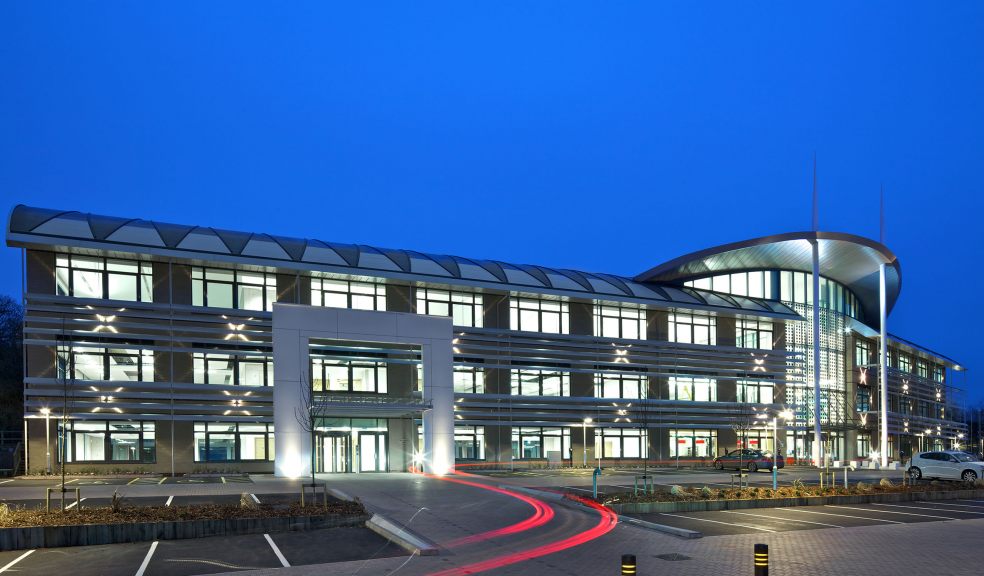
Widespread investment boosts Exeter’s economy
More than £450 million has been invested into Exeter’s economy over the past four years, new figures have revealed.
The figures from Exeter City Council, Devon County Council and East Devon District Council show a substantial boost in educational, cultural and transport improvements. A large amount of commercial and residential property projects have also contributed towards the figure, with at least another £40 million worth of public and private investment expected by the end of 2016.
The Exeter and Heart of Devon Growth Point, a public and private sector partnership involving Exeter City Council, Devon County Council, East Devon District Council, Teignbridge District Council and a wide range of private sector partners has been proactive in bringing forward and supporting a major growth programme centred on Exeter and the surrounding areas since 2006.
This spike in investment has helped to deliver some of the area’s most prestigious new buildings such as Oxygen House (home to ATASS, and the Andromeda Capital group of companies), Eagle House (home to blur Group and Eagle One), the University of Exeter’s award-winning Forum Building, and the Exeter Science Park Centre in East Devon.
Devon County Council continues to invest large sums in improving the local transport infrastructure to support growth. Newcourt Station is now open and work on two new railway stations located at Cranbrook and Marsh Barton is underway.
Important road improvements include Tithebarn Link Road which, when complete, will provide an alternative route between the city and the Exeter and East Devon Growth Point. In addition, the widening of Bridge Road to provide two continuous lanes from Countess Wear will reduce congestion and journey times.
Following significant extensions to cycle routes across Exeter and East Devon, cycle use has increased by 40% since 2005 amongst both holiday makers and residents enjoying the River Exe Cycle Trail and other scenic trails, and commuters using bicycles as their main form of transport.
Education in Exeter has seen over £328 million invested in new facilities and renovations, including £275 million on an extensive new build programme at the main University of Exeter campus. This Top 10 Russell Group University has also invested significantly in the multi-million pound Living Systems Institute building, due for completion in spring 2016.
Students at Exeter College will soon benefit from the recently-built sports hall with two classrooms and sports science and rehabilitation laboratory that is due to open in September 2015. Their new technology centre next to the Exeter Business Park opened in 2012, whilst a maths and science centre will open later this year in a large refurbished building on Queen Street.
With the arrival of new homes and residents, Exeter’s city centre has seen significant changes too, with new shops and restaurants opening in Exeter’s Princesshay shopping area, redevelopment of the Guildhall Shopping Centre and extensive refurbishment of the Royal Albert Memorial Museum (RAMM).
Exeter’s library re-opened in May 2014 following major redevelopment and addition of new facilities such as the Fab Lab Exeter, providing a low-cost digital fabrication workshop space available to inventors, artists, small businesses and entrepreneurs, forming part of a network of just over 200 Labs across the world, with Exeter Library being the first UK public library to incorporate a FabLab space.
In order to preserve what is so special about this city, Exeter’s cultural heritage is also being enhanced with essential maintenance and stone conservation at the iconic Exeter Cathedral which has been underway since 2011, ensuring the remarkable building is there to be enjoyed for future generations.
Cllr Rachel Sutton, Portfolio Holder for City Development at Exeter City Council, said: “These figures speak for themselves. It is a great example of the major growth and acceleration of Exeter’s economy across all areas of business and leisure. As well as extensive redevelopment of major buildings and a whole range of new properties worth £73 million, the city is set to benefit from millions of pounds worth of cultural and transport improvements.”
She continued: “Exeter already has a lot to offer in terms of location, connectivity and the business network that is consistently expanding. Collaboration between Exeter City Council, Devon County Council, neighbouring authorities and the jointly funded Growth Point team has resulted in the arrival of the Exeter Science Park and Skypark sites. Alongside that, Sandy Park Stadium improvements and the arrival of John Lewis have helped to put Exeter on the map and create hundreds of jobs. With similar partnership and investment projects promised over the next few years, Exeter is set for continued growth and a very promising future.”
Over the next few years Exeter will see further significant investment from organisations such as The Met Office, who are building their new £97 million supercomputer that will be located at the Exeter Science Park.
Working with Devon County Council and Exeter City Council, The Environment Agency began essential works on the Exeter Flood Defence Scheme this year. This project will see an estimated £16 million invested in improving the flood defences along the River Exe and mark a huge step in reducing flood risk in Exeter by 2018.
Exeter City Council will be investing £26m to regenerate the bus station site – a crucial gateway to the city that acts as a first impression for many visitors. As well as a new bus station, the development includes a modern, state-of-the-art leisure centre, including modern, efficient swimming pools, a spa, fitness studios and facilities for children.
In addition, The Crown Estate and TIAA Henderson Real Estate are investing a further £70m in the Princesshay Leisure development a high quality restaurant, retail and leisure development that includes a new cinema, shops, communal space and more.
For more information visit www.investinexeter.co.uk or follow @investinexeter on Twitter.
You can find out more about Devon’s economy www.Investdevon.co.uk or follow @DCCeconomy on Twitter.



















